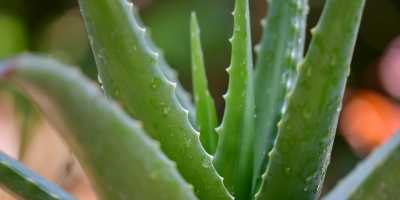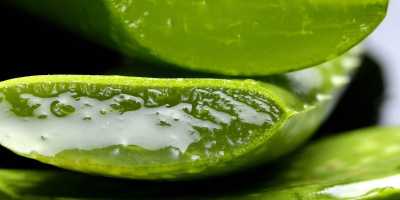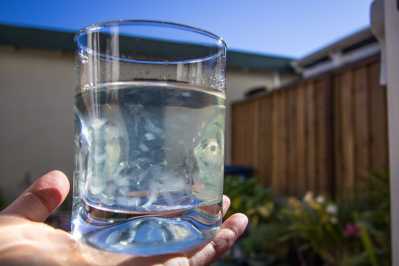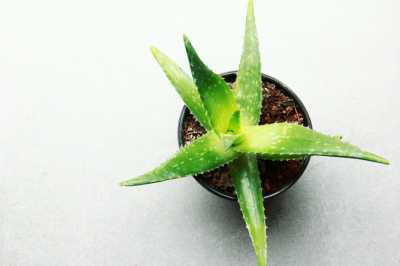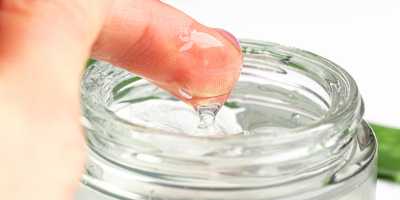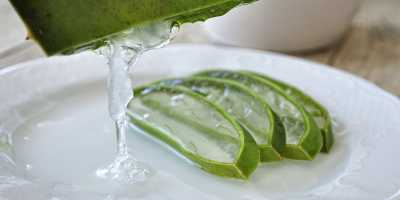Top 10 Aloe Vera Questions Answered: Everything You Need to Know
Aloe vera is a versatile plant that has been used for centuries for its many health and beauty benefits. From its soothing gel to its nutrient-rich juice, aloe vera has become a popular ingredient in a wide range of products. But with so many claims and information out there, it can be overwhelming to know where to start. That's why we've compiled a list of the top 10 most popular questions about aloe vera and answered them in detail.
In this article you'll find everything you need to know about aloe vera, including its benefits uses, and how to grow and care for it. Whether you're a long-time fan or new to the world of aloe vera, this guide has got you covered. So, let's dive in and discover the top 10 aloe vera questions answered!
-
Can you eat aloe vera?
Yes, aloe vera can be eaten but it is important to note that only the inner gel of the plant is edible. The outer layer of the leaf known as the latex or sap, contains aloin, a compound that can cause diarrhea and abdominal cramping if consumed in large quantities.
The gel of the aloe vera plant can be added to smoothies, juices, and other recipes to add a nutritional boost. Aloe vera gel is rich in vitamins, minerals, and antioxidants and is known for its anti-inflammatory properties. It has a slightly bitter taste, so it is often mixed with other ingredients to improve the flavor.
It is important to use caution when consuming aloe vera, as consuming too much can have negative side effects. It is recommended to start with small amounts and gradually increase the quantity as tolerated. It is also important to choose aloe vera plants that have not been treated with pesticides or other chemicals, as these can be harmful if ingested.
If you have any medical conditions or are taking medication it is important to consult with a healthcare professional before adding aloe vera to your diet, as it may interact with certain medications or exacerbate certain medical conditions.
-
How much aloe vera juice to drink daily?
The recommended amount of aloe vera juice to drink daily can vary depending on individual needs and health conditions. It is important to consult with a healthcare professional before adding aloe vera juice to your diet, as they can provide personalized recommendations based on your individual health status.
In general, aloe vera juice is often consumed in small amounts, typically between 2 to 4 ounces (60 to 120 milliliters) per day. It is important to start with a small amount and gradually increase the quantity as tolerated.
It is also important to choose a high-quality aloe vera juice that is free from additives and preservatives. Look for a product that is made from 100% pure aloe vera gel and has undergone minimal processing. Some aloe vera juices may contain added sugars or other ingredients that can reduce the health benefits of the juice.
It is important to note that aloe vera juice can have potential side effects such as digestive discomfort or allergic reactions. If you experience any adverse effects it is important to discontinue use and consult with a healthcare professional.
Overall, while aloe vera juice can offer potential health benefits, it is important to use caution and consume in moderation to avoid any negative effects on your health.
-
What is aloe vera good for?
Aloe vera is a plant that has been used for medicinal purposes for thousands of years. It is known for its numerous health benefits which include:
-
Skin health: Aloe vera is a popular ingredient in skincare products due to its moisturizing and anti-inflammatory properties. It can help to soothe and heal sunburns, reduce the appearance of fine lines and wrinkles, and improve overall skin texture and tone.
-
Digestive health: Aloe vera juice has been used as a natural remedy for digestive issues such as constipation and irritable bowel syndrome (IBS). It may help to improve gut health and reduce inflammation in the digestive tract.
-
Immune system support: Aloe vera contains antioxidants and other nutrients that can help to boost the immune system and protect against disease.
-
Wound healing: Aloe vera has been shown to help speed up the healing process of wounds and burns. Its anti-inflammatory and antibacterial properties can help to prevent infection and reduce swelling.
-
Oral health: Aloe vera can be beneficial for oral health when used in a mouthwash or toothpaste. It can help to reduce plaque buildup, promote healthy gums, and prevent bad breath.
-
Diabetes management: Aloe vera may be helpful for people with diabetes, as it has been shown to help regulate blood sugar levels and improve insulin sensitivity.
-
Heart health: Aloe vera may help to improve cholesterol levels and reduce inflammation in the body, both of which are important for maintaining heart health.
Overall aloe vera is a versatile plant that can offer a range of health benefits. However it is important to use caution when using aloe vera products and consult with a healthcare professional before adding them to your routine, especially if you have any medical conditions or are taking medication.
-
-
Does aloe vera gel expire?
Yes, aloe vera gel can expire, and it is important to check the expiration date before using it. The shelf life of aloe vera gel can vary depending on the brand, the processing method and the preservatives used. Typically, unopened aloe vera gel can last for up to two years if stored in a cool dry place away from direct sunlight.
Once opened, aloe vera gel can be exposed to air and bacteria, which can cause it to spoil more quickly. It is important to check the product label for any specific storage instructions or expiration dates and to discard any gel that appears discolored, has an unusual odor, or has separated into liquid and solid parts.
To extend the shelf life of aloe vera gel it is important to store it properly. Keep the product in a cool, dry place, away from direct sunlight, and close the container tightly after each use. Some brands may also recommend storing the gel in the refrigerator to help preserve its freshness.
Overall it is important to use caution when using expired or spoiled aloe vera gel, as it may not provide the same benefits and could potentially cause adverse effects on the skin or body.
-
How to grow aloe vera?
Aloe vera is a relatively easy plant to grow and care for, and it can be grown both indoors and outdoors. Here are the basic steps for growing aloe vera:
-
Choose a location: Aloe vera prefers bright, indirect sunlight so choose a location that receives plenty of light but is protected from direct sunlight. If you are growing aloe vera indoors place it near a sunny window.
-
Plant the aloe vera: Aloe vera prefers well-draining soil, so use a cactus or succulent potting mix or make your own by mixing sand, perlite and peat moss. Place the aloe vera in the soil making sure the roots are covered, and gently pack the soil around the base of the plant.
-
Water the plant: Aloe vera is a drought-tolerant plant and prefers to be kept on the drier side. Water the plant deeply but infrequently, allowing the soil to dry out completely between waterings. Overwatering can cause the roots to rot so be careful not to water too often.
-
Fertilize the plant: Aloe vera does not require much fertilizer, but you can feed it with a balanced fertilizer once or twice a year in the spring and summer months.
-
Care for the plant: Aloe vera is a low-maintenance plant but it can benefit from occasional pruning to remove dead or damaged leaves. It is also important to protect the plant from extreme temperatures and to repot it every few years to refresh the soil and promote healthy growth.
-
-
How to take care of aloe vera plant?
Aloe vera is a hardy plant that requires relatively low maintenance. Here are some tips for taking care of your aloe vera plant:
-
Watering: Aloe vera is a succulent plant, which means it stores water in its leaves. This makes it drought-tolerant and able to survive in dry conditions. Water your aloe vera plant sparingly, allowing the soil to dry out completely between waterings. Overwatering can cause the roots to rot which can kill the plant.
-
Light: Aloe vera prefers bright, indirect sunlight. Place your plant near a window that gets plenty of light, but avoid direct sunlight, as this can scorch the leaves. If your aloe vera plant is not getting enough light it may become leggy and start to lean towards the light source.
-
Soil: Aloe vera prefers well-draining soil. Use a cactus or succulent potting mix, or make your own by mixing sand perlite and potting soil. Avoid using regular garden soil, as it can hold too much moisture and cause the roots to rot.
-
Fertilizing: Aloe vera does not require much fertilizer, but you can feed it with a balanced fertilizer once or twice a year. Be careful not to over-fertilize, as this can damage the plant.
-
Pruning: Aloe vera does not require much pruning, but you can remove any dead or damaged leaves as needed. This can help keep the plant looking tidy and healthy.
-
Propagation: Aloe vera can be propagated by separating the offsets, or "pups " that grow from the base of the plant. Wait until the pups are several inches tall before removing them from the mother plant, and replant them in their own pots with well-draining soil.
-
Temperature: Aloe vera prefers warm temperatures between 60-85°F (16-29°C). It can tolerate cooler temperatures, but it may become dormant if the temperature drops below 40°F (4°C). Protect your aloe vera plant from frost and extreme heat, which can damage the leaves.
Overall taking care of your aloe vera plant is relatively easy as long as you provide it with the right growing conditions and avoid overwatering. With proper care your plant can thrive and provide you with its many benefits for years to come.
-
-
Is aloe vera good for your face?
 Marco Verch Professional Photographer / CC BY 2.0
Marco Verch Professional Photographer / CC BY 2.0 Yes! Aloe vera is a popular ingredient in many skincare products due to its numerous benefits for the skin. Aloe vera is packed with vitamins, minerals, and antioxidants that can help nourish and protect the skin. Here are some of the benefits of using aloe vera on your face:
-
Moisturizing: Aloe vera contains a high concentration of water, making it an excellent natural moisturizer. It can help hydrate and soften the skin, leaving it feeling smooth and supple.
-
Soothing: Aloe vera has anti-inflammatory properties, which can help soothe and calm irritated or inflamed skin. It is particularly effective for treating sunburns, rashes and other types of skin irritation.
-
Anti-aging: Aloe vera is rich in antioxidants, which can help protect the skin from damage caused by free radicals. Free radicals are unstable molecules that can damage skin cells and contribute to premature aging. Regular use of aloe vera on the face can help reduce the appearance of fine lines and wrinkles.
-
Acne-fighting: Aloe vera has antibacterial properties, which can help fight acne-causing bacteria on the skin. It can also help reduce inflammation associated with acne making it an effective natural remedy for acne-prone skin.
-
Lightening: Aloe vera has natural skin-lightening properties, making it an effective natural remedy for hyperpigmentation and dark spots. Regular use of aloe vera on the face can help even out skin tone and reduce the appearance of dark spots.
Aloe vera is a versatile and effective ingredient for skincare. Whether you have dry oily, or sensitive skin, incorporating aloe vera into your skincare routine can help nourish protect, and improve the overall appearance of your skin.
-
-
Is aloe vera juice good for you?
Aloe vera juice is derived from the inner leaf of the aloe vera plant and is a rich source of vitamins minerals, and antioxidants. Here are some of the potential benefits of consuming aloe vera juice:
-
Hydration: Aloe vera juice is an excellent source of hydration and can help replenish fluids lost during physical activity or hot weather. It also contains electrolytes such as potassium, magnesium, and calcium, which are essential for proper hydration.
-
Digestion: Aloe vera juice contains enzymes that can help improve digestion and promote regular bowel movements. It is also rich in fiber, which can help regulate bowel function and prevent constipation.
-
Immune system: Aloe vera juice is rich in antioxidants and has been shown to have immune-boosting properties. Regular consumption of aloe vera juice may help strengthen the immune system and protect against illness and disease.
-
Skin health: Aloe vera juice is a rich source of vitamins and minerals that are essential for healthy skin. Regular consumption of aloe vera juice may help improve the overall appearance and health of the skin.
-
Heart health: Aloe vera juice has been shown to have cholesterol-lowering properties and may help improve heart health. It also contains compounds that can help improve blood circulation and reduce the risk of blood clots.
It's important to note that while aloe vera juice has many potential benefits more research is needed to fully understand its effects on the body. Additionally some people may experience side effects such as stomach cramps or diarrhea from consuming aloe vera juice. As with any dietary supplement, it's best to consult with a healthcare provider before incorporating aloe vera juice into your diet.
-
-
Does aloe vera help acne?
The antibacterial properties of aloe vera may help prevent and reduce the severity of acne breakouts. The gel from the aloe vera plant contains salicylic acid which is a common ingredient in many acne treatments. Salicylic acid helps unclog pores and reduce inflammation, which can help prevent and treat acne.
Aloe vera also contains antioxidants such as vitamins C and E which can help protect the skin from damage caused by free radicals. Free radicals are unstable molecules that can damage skin cells and contribute to the development of acne.
Additionally aloe vera may help reduce the appearance of acne scars. Its anti-inflammatory properties can help reduce redness and swelling, while its moisturizing properties can help improve the texture and appearance of the skin.
-
How to use aloe vera for acne: You can use aloe vera gel directly on your skin as a spot treatment for acne. Apply the gel to the affected area and leave it on for 30 minutes before rinsing off with water. You can also mix aloe vera gel with other natural ingredients such as honey or tea tree oil for a more potent acne-fighting treatment.
-
Cautions: While aloe vera is generally safe to use on the skin, some people may be allergic to it. If you experience any redness itching, or irritation after using aloe vera, discontinue use immediately. Additionally it's always a good idea to do a patch test before using a new product on your skin.
In general, aloe vera can be an effective natural remedy for acne and its related skin issues. However it's important to remember that everyone's skin is different and what works for one person may not work for another. If you have severe or persistent acne, it's best to consult with a dermatologist for personalized treatment recommendations.
If you are interested in eliminating acne, check this out: 10 Simple Homemade Tricks to Get Rid of Acne
-
-
What is aloe vera juice good for?
Drinking aloe vera juice may have several potential health benefits due to its high nutrient content and anti-inflammatory properties. Some of the benefits of consuming aloe vera juice include:
-
Hydration: Aloe vera juice is a good source of hydration and can help replenish fluids in the body.
-
Digestion: Aloe vera juice may help promote healthy digestion by reducing inflammation in the gut and improving the absorption of nutrients. It may also help relieve constipation.
-
Immune system: Aloe vera juice contains antioxidants such as vitamins C and E which can help boost the immune system and protect the body from harmful free radicals.
-
Heart health: Some studies suggest that consuming aloe vera juice may help lower cholesterol levels and reduce the risk of heart disease.
-
Skin health: Aloe vera juice may help improve skin health by promoting hydration, reducing inflammation, and protecting against damage caused by free radicals.
It's important to note that aloe vera juice should be consumed in moderation, as excessive consumption may cause digestive discomfort or diarrhea. Additionally, aloe vera juice should be consumed as a supplement to a balanced and varied diet, not as a replacement for whole foods.
If you're interested in trying aloe vera juice for its potential health benefits be sure to choose a high-quality product from a reputable source and consult with your healthcare provider beforehand if you have any underlying health conditions or concerns.
-
